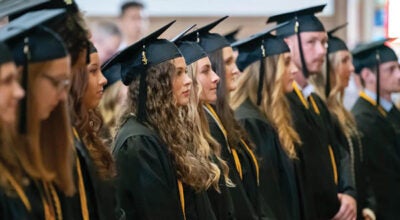Lee calls special session to address COVID-19 liability
Published 9:17 am Tuesday, August 4, 2020

- Gov. Bill Lee
|
Getting your Trinity Audio player ready...
|
NASHVILLE (AP) — Gov. Bill Lee on Monday announced he’s calling lawmakers back to the Capitol to address legislation that would provide health care providers, schools and businesses broad protections against coronavirus lawsuits.
Lee said the special legislative session will convene Aug. 10 to address not only COVID-19 liability but also “telehealth services and laws governing the Capitol grounds.”
The GOP-dominated Statehouse failed to advance the proposal earlier this year when negotiations among lawmakers broke down in the hectic waning hours of legislative work.
The main dividing line over the liability bill was whether to make its protections retroactive to early March, which the Senate supported and the House opposed. Key lawmakers not only questioned whether it would be upheld in court but also whether adding a retroactive clause would make it blatantly illegal.
Critics of such legislation argue the legislation is unnecessary, pointing out that liability lawsuits are already one of the toughest cases to bring before a judge — adding additional restrictions would only punish those seeking justice.
Tennessee was one of the first states to begin reopening in late April after Lee reluctantly issued a safer-at-home order that forced businesses to close. Since then, case numbers have continued to rise, in part due to more testing but also because of an increase in community spread of the disease.
Meanwhile, protesters have held demonstrations outside the Capitol for more than 50 days demanding police reform. The protests have resulted in multiple arrests by state troopers.
During the early days of the protests, the Tennessee House advanced legislation that would have significantly increased penalties against demonstrators who violated certain state laws. That bill failed to clear the Senate.
It’s unclear how much access the public will have during the special session. The Senate had prohibited the public earlier this year when in session, while the House had allowed some people to attend meetings and floor sessions.



